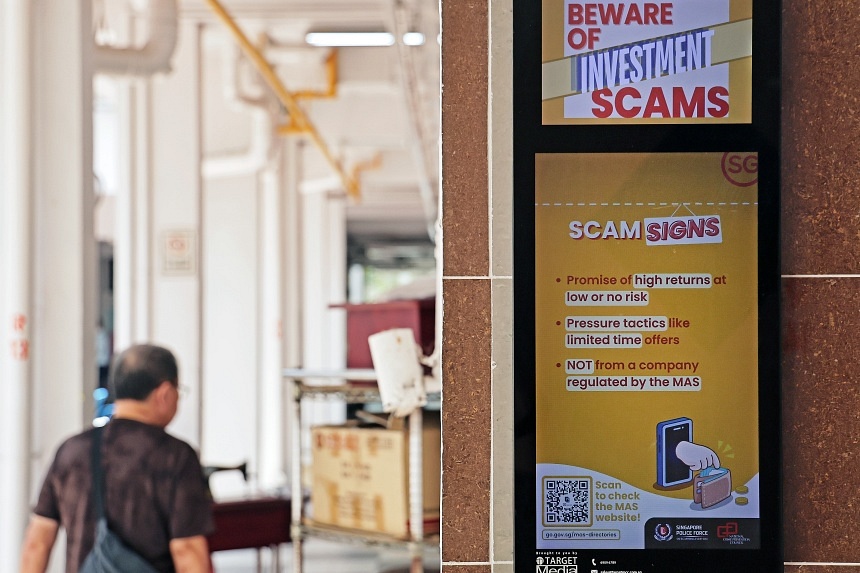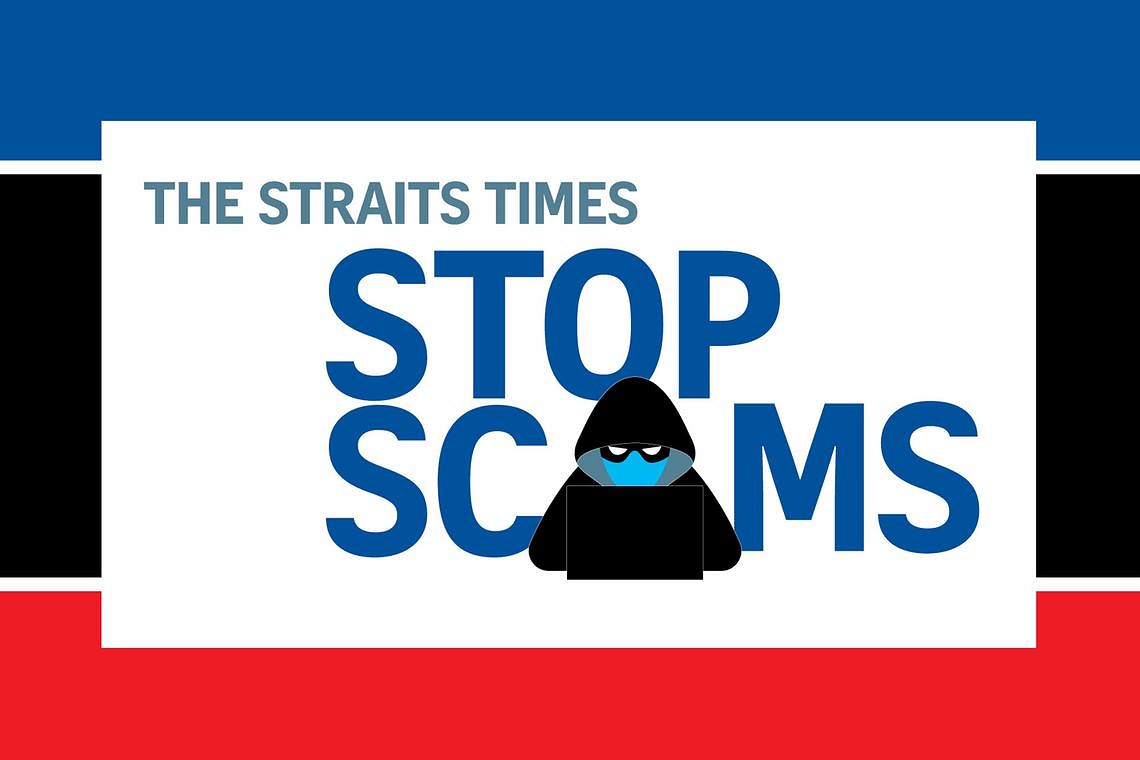Saturday, August 31, 2024
林任君:珍惜我们自己的海南咖喱饭
Friday, August 30, 2024
社论:保持活跃有助减少患失智症风险
Wednesday, August 28, 2024
Psychological resilience fundamental in the fight against scams
Psychological resilience fundamental in the fight against scams
Deception and social engineering were behind most reported scams, with victims manipulated into transferring money directly in many of these cases.
Sun Xueling

For more than a week, Mr Y lived in fear, crying alone in his bedroom, refusing to communicate with his family, as he believed he was under investigation for money laundering. He had lost $800,000 to a government official impersonation scam. I met Mr Y at a Meet-the-People Session.
Being an ex-civil servant and a law-abiding citizen all his life, he faithfully complied with the instructions from scammers, desperate to prove his innocence. Mr Y is one of more than 4,000 victims who lost monies through this scam type ever since the Singapore Police Force (SPF) started tracking scam numbers in 2016.
SPF recently released the half-year scam statistics for 2024, revealing a 16.3 per cent rise in scam cases to 26,587 in the first half, with losses amounting to at least $385.6 million.
Of the top 10 scam types, three scam types stood out for the highest average amount loss per case – government officials impersonation scams with an average loss of $116,534 per case, investment scams with an average loss of $40,080 per case and internet love scams with an average loss of $29,969 per case.
Collectively, these three scam types accounted for 55.4 per cent of all losses sustained from scams and involved mostly self-effected transfers where victims were manipulated into willingly transferring money to scammers.
Including scams like job scams, e-commerce scams, and fake friend calls, around 86 per cent of reported cases involved deception and social engineering. In these instances, scammers didn’t gain direct access to victims’ accounts, but instead manipulated them into transferring money.
The psychology of scams
Scammers exploit the vulnerabilities of their victims and make a living out of it.
In one case, Madam C became a victim of multiple job and love scams. Estranged from her family, she desired companionship and was unemployed. She accepted “friendship” requests on social media easily and fell prey to scams repeatedly.
When the police turned up at her doorstep to inform her that she was under investigation for being a money mule, she was adamant that the scam proceeds in her account were “living expenses” sent to her by her online lover.
Another victim, Madam L, spoke of how she was in a trance-like state during the entire month she was ensnared in an investment scam. She was highly educated and independent but repeatedly transferred monies at the instruction of the scammers, deaf to the pleas of relatives and advice of the police. She could not accept she was being scammed and kept on transferring money, hoping she would get her money back.
In The Psychology Of Fraud, Persuasion And Scam Techniques, Martina Dove describes how precursors or pre-existing individual circumstances, individual characteristics and the credibility of a scam offer can come together to increase scam vulnerability.
For instance, some circumstances such as the need to supplement income, family estrangement, social surroundings and victims’ personal characteristics – like fear of authority, loneliness, desire for love, fear of missing out on a money-making opportunity and loss aversion – can create an environment ripe for scammers to rip victims off.
Add to this the well-rehearsed role-play among scam syndicates, the use of credible “props” like legitimate-looking letters or “personal testimonials” of investment success, and the pressure to act quickly, and victims are hustled to the slaughter.
We can ACT against scams
Our vulnerabilities should not determine our destiny. To quote Charlie Munger in his speech titled The Psychology Of Human Misjudgement, “Tendencies can’t be simply washed out automatically and shouldn’t be... Tendency is not always destiny and knowing the tendencies and their antidotes can often help prevent trouble that would otherwise occur.”
Psychologist Daniel Kahneman’s book titled Thinking, Fast And Slow describes the decision-making process of individuals. In thinking fast, individuals make decisions based on emotions, stereotypes and unconscious bias. In thinking slowly, individuals make more effort, are logical, calculating and conscious.
As a first step, if potential scam victims take a moment, slow down their decision-making and not be stress-influenced or hassled into making a monetary transfer, they are less likely to suffer a loss.
Kahneman also writes of optimism bias where individuals believe they are less likely to experience a negative event. And of loss aversion and sunk cost tendencies, where individuals “throw good money after bad” and continue investing in projects with poor prospects to avoid feelings of regret.
These tendencies and vulnerabilities of the common person are fully exploited by scammers as we fall prey to investment scams, job scams and e-commerce scams.

So what can individuals do to protect ourselves from our inherent vulnerabilities?
ACT (add, check, tell) is a framework to help individuals take steps to protect themselves against scams.
First, we can ADD safeguards in “peacetime” so we are less likely to be exploited when our defences are down. For instance, add Money Lock so that a specific portion of our funds cannot be easily digitally transferred.
By adding friction to digital transfers of monies, we slow down potentially disastrous decisions we make under stress. Only about 114,000 bank customers across major retail banks have utilised Money Lock. That is just about 1 per cent of our retail depositor base of local banks.
We can also safeguard ourselves against our cognitive biases by CHECKing with friends, family and official sources when we are approached with an “attractive offer”. They can give us a reality check and protect us from our optimism bias and greed. Even warn us about that scammy online lover.
Lastly, we can TELL our family and friends if we suspect we are being scammed. Often, victims sink deeper and deeper into a scam due to loss aversion and sunk cost tendencies.
Multi-agency and stakeholder intervention
The Inter-Ministry Committee on Scams that I chair will continue to strive to protect the public by intercepting contact methods that scammers use to access unwitting victims.
Telcos have implemented blocks on robocalls and incoming overseas calls that spoof local numbers. The SMS Sender ID Registry (SSIR) and gov.sg SMS sender ID were introduced to help the public recognise authentic SMSes. Banks strengthened anti-malware controls to protect mobile banking users and we collaborated with industry partners such as Google to prevent the installation of unverified apps for Android phone users.
Through these efforts, the volume of calls which attempted to spoof local numbers dropped from about 970 million in 2022, to 18 million in 2023, of which all 18 million calls were blocked.
In the three months after the implementation of the SSIR, scams due to SMSes fell by 70 per cent. In the first half of 2024, the number of scams that originated from calls and SMSes also dropped by 30 per cent and 20 per cent respectively as compared with the same period in 2023.
SPF also worked with local internet service providers to identify and disrupt over 18,000 scam-related websites in the first half of 2024.
We see results as scams that involved mostly non self-effected transfers such as malware-enabled scam cases decreased by 86.2 per cent in the first half of 2024 as compared with the same period in 2023. The total amount lost to malware-enabled scams for the same period also decreased by 96.8 per cent, from around $9.1 million in the first half of 2023, to $295,000 in the first half of 2024.
The authorities have also enhanced the ScamShield app so that potential scam threats via calls, SMSes, WhatsApp, Telegram and web links can be identified and users alerted.
Enhanced measures are being explored to protect vulnerable scam victims, especially those who remain unaware they’re being scammed despite repeated warnings. This could include empowering police officers to restrict victims’ banking transactions, if there is reasonable belief that they will make money transfers to scammers.
But defences have to be at two levels. Members of the public also have to be vigilant and psychologically resilient against scam threats.
Scams are a scourge on our society and an assault on our human vulnerabilities. Recognising our personal vulnerabilities is a first step towards protecting ourselves. To fight back, we need to work on ourselves. Let’s develop the psychological resilience to safeguard ourselves against scams and consciously take steps to protect ourselves.
- Sun Xueling is Minister of State for Home Affairs and Minister of State for Social and Family Development.
Join ST's Telegram channel and get the latest breaking news delivered to you.











